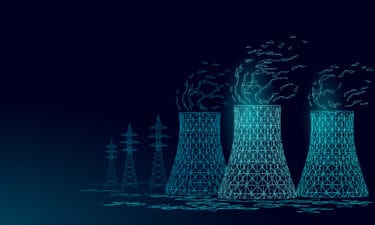A year ago, the conversation surrounding TransCanada Corporation’s (TSX: TRP)(NYSE: TRP) proposed Keystone XL pipeline was very different. The company was arguing that Canada’s oil sands are critical if the U.S. wants to stop importing oil from countries like Saudi Arabia.
TransCanada was also arguing that the oil sands were going to be developed either way. After all, oil was trading at very heavy levels. And if the product doesn’t get moved by pipeline, it gets moved by rail, which is actually worse for the environment. A report by the U.S. State Department at the beginning of this year seemed to confirm this fact. It seemed like only a matter of time
before the project would be approved.
Keystone may be dead
Now, there are a number of reasons to believe the pipeline may be dead.
For one, crashing oil prices have a disproportionate effect on the oil sands. While experts disagree on the exact numbers, most conclude that Canadian oil costs more to produce than American oil. So will there even be enough demand for Keystone pipe capacity?
More importantly, now that oil prices are so low, pipelines such as Keystone may be the key swing factor in oil sands growth. This lends further credibility to environmentalists’ claim that the pipeline will lead to greater production in the oil sands – and hence greater greenhouse gas emissions.
President Obama appears to be hearing these calls, and judging by his public statements, seems to be growing more opposed to the pipeline. He even downplayed many of the pipeline’s supposed benefits on The Colbert Report this week.
Meanwhile, the American people seem to have moved on. One analyst from Texas called it “old news,” and an oil magnate recently called the pipeline “irrelevant.”
So that leaves some important questions for TransCanada and its shareholders. What effect will it have on the business if Keystone is never built? How many of its other projects are affected by the same factors? And are the shares overvalued?
Should you buy?
First of all, even if Keystone is never built, it won’t be that much of a loss to the company. The projected cost has swelled to $8 billion, but still comprises less than 20% of the company’s planned capital spending this decade.
Other projects could be at risk too, such as the Energy East pipeline. This is especially true if Keystone is rejected – such a move would surely embolden environmentalists as they fight against pipelines back in Canada.
But there are still reasons to like the company. First of all, the shares could see a big jump if TransCanada fully utilizes its Master Limited Partnership in the United States. Enbridge Inc. (TSX: ENB)(NYSE: ENB) just made a similar move, and the shares have jumped in response.
Secondly, TransCanada is protected by long-term contracts, which help to insulate the company from commodity price risk. So even if growth projects are threatened, the dividend (which currently yields 3.6%) should remain safe.






